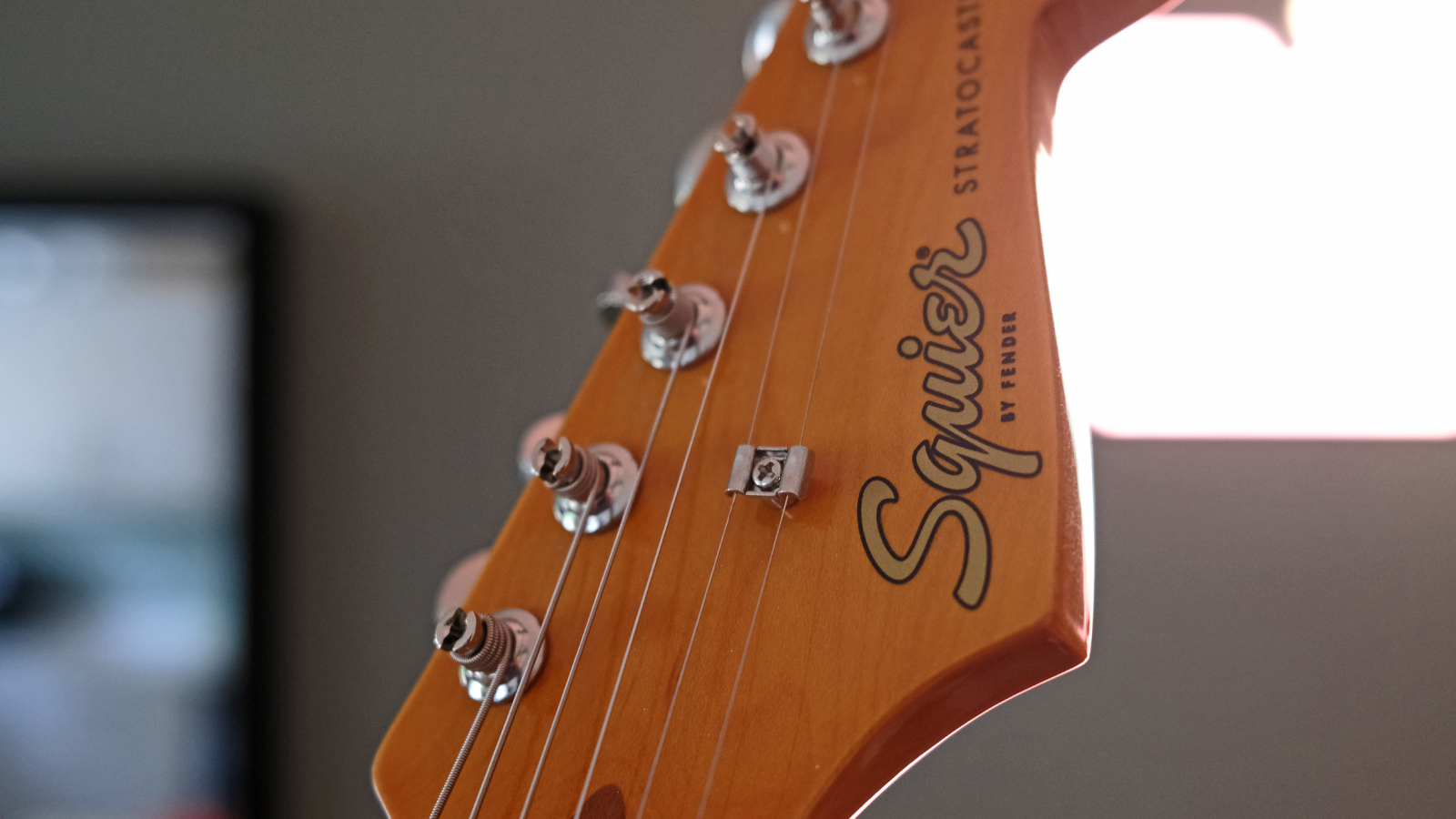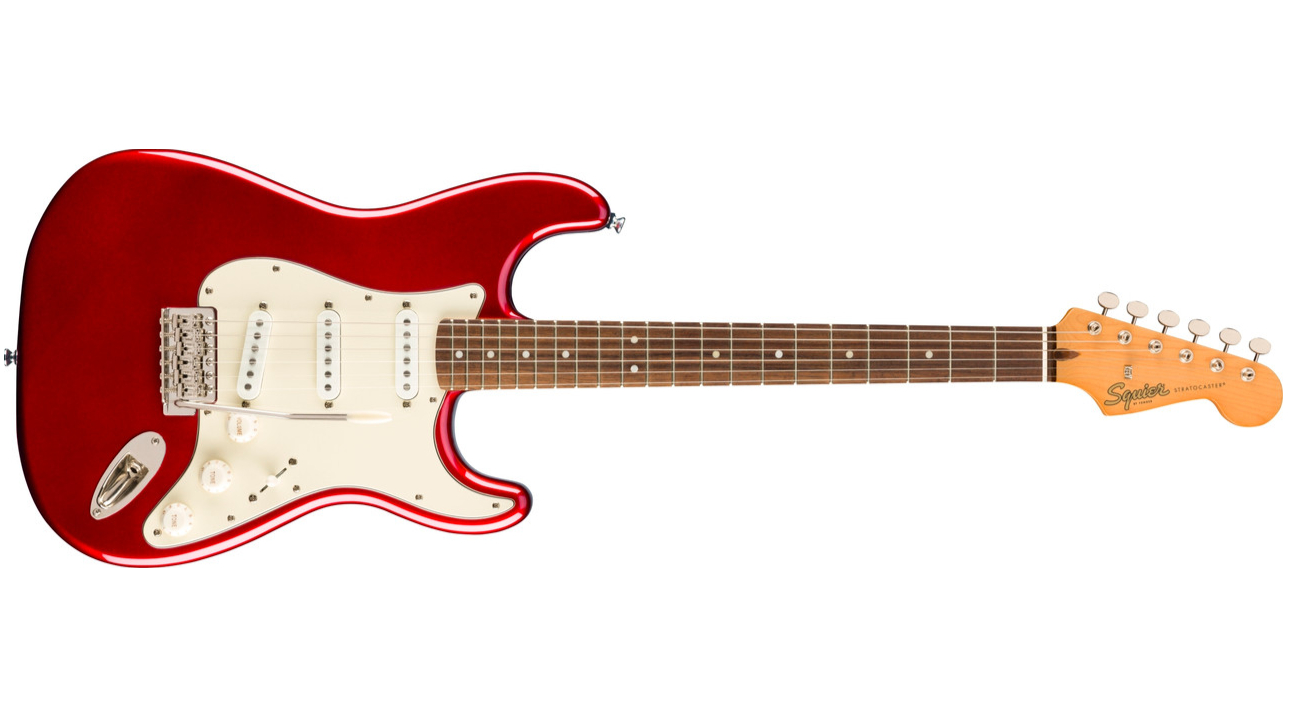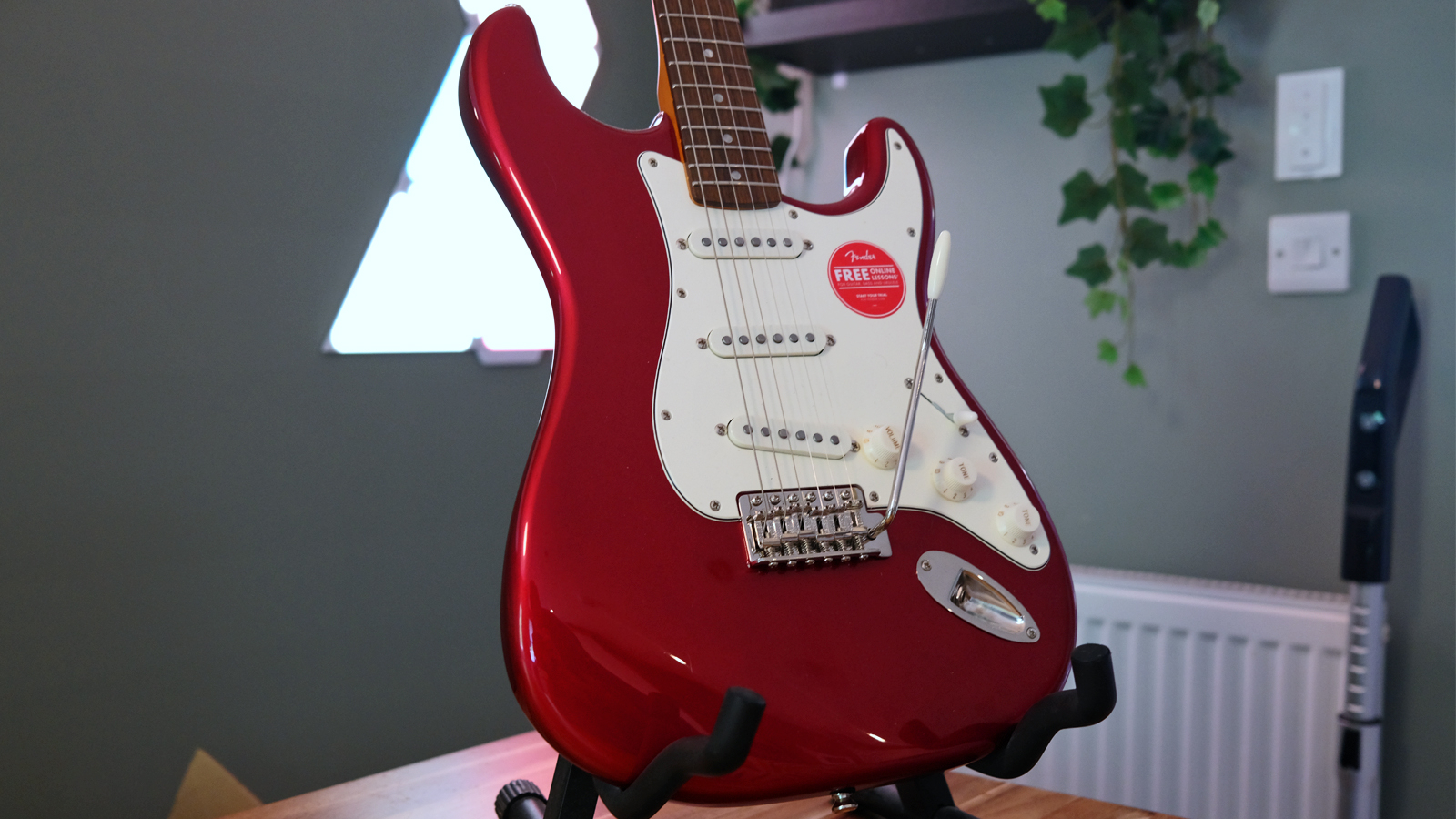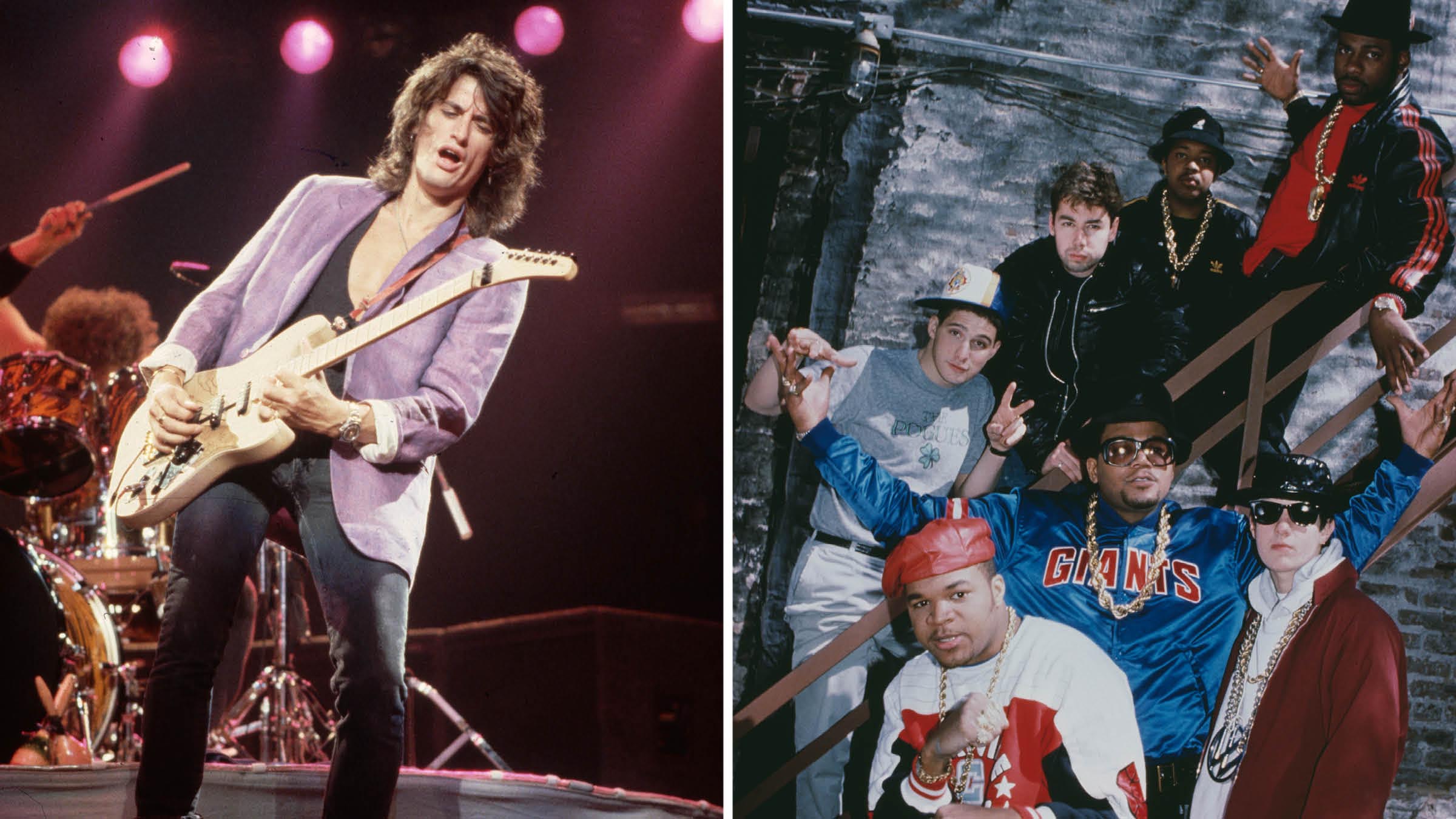Guitar World Verdict
The Squier Classic Vibe 60s Strat looks, sounds and feels like a much more expensive instrument and, at under $400, it represents tremendous value. Small details like the neck finish and the vintage hardware add up to create a guitar which is full of character and personality. It goes to show; sometimes vibe is more important than a spec-sheet.
Pros
- +
The neck is a marvel
- +
Neck pickup sounds great
- +
Instantly familiar to play
Cons
- -
More color options would be nice
You can trust Guitar World
Squier’s Classic Vibe series is slowly coming up to its 20th anniversary. In that time, it has introduced a host of now much-loved versions of Fender icons and, in the process, built itself a reputation for offering – dare we say it – better pound-for-pound value than the equivalent entry-level Fender models. Given the choice, I’d probably opt for a Classic Vibe Strat over a base Mexican Fender, for example. The guitar on review today, a Squier Classic Vibe 60s Stratocaster, is a perfect example of why. Allow me to explain.
Electric guitars, like cars or wristwatches, all have objective merits and ways to grade these merits. The materials used, the craftsmanship that went into producing them, or the country of origin, for example. But they also all have a far less simple, intangible metric against which they’re judged: vibe. In the same way, a $20 Casio and a $10k Omega both just fundamentally tell the time; they both hold their own characteristic vibe. No two vibes are alike, and people seek out different things to match their requirements, personalities, or desire to express themselves.

In the same way, a Squier Classic Vibe Stratocaster and a Fender Player Stratocaster are both, essentially, very similar guitars. It has the same classic body shape and the same pickup configuration. Yet, with the Classic Vibe, there exists – subjectively, of course – much more in the way of character. Where the Player Strat gives the impression of being a serious tool for dedicated players, the CV series is more about the fun and cool factor that comes from playing guitar.
The Squier Classic Vibe 60s Strat we have is a great example. To keep costs manageable – a key component of the Squier offer – we’ve got a Nyatoah tonewood body, as opposed to the higher-spec Alder body of the Player Strat. The hardware is all vintage style, nickel-plated and maybe won’t hold up for the next 20 years like a US Strat would, but that’s fine. Many people buy Squiers for modding purposes anyway, fitting their own pickups, bridges, and aftermarket tremolos, so the lower-spec hardware doesn’t concern me too much.
The neck on the CV 60s is a beauty. The tinted gloss urethane finish – minus the skunk stripe, if that bothers you – is a wonderful shade of aged brown, which, when combined with the Indian Laurel fingerboard, gives the guitar a proper retro look against the candy apple red finish of our review model.

Playability is about where you want a Strat of any grade to be. It feels comfortable to play standing up or sitting down, and the belly cut-out is especially appreciated by this writer. The C-shaped neck and narrow tall frets felt comfortable in hand, although not necessarily if you’re a shredder.
Tonally, I found the CV 60s sits slightly more mellow than the Fender Player Strat, with the neck pickup, in particular, offering a nice balance between the typical Strat chime and something rounder and better suited to blues soloing. There might not be as much warmth or sustain as the more expensive models, but it never felt overly weak or cheap to my ears. Besides, pair the CV with a Tube Screamer, and you’ll have more than enough jangle and clank to play with.
All the latest guitar news, interviews, lessons, reviews, deals and more, direct to your inbox!
Final verdict

When there are so many factors that will play a part in your decision-making process, it is easy to default to what makes the most ‘sense.’ Sense could mean choosing a guitar that might have better resale value down the line, or it could be sticking with the name you’re familiar with on the headstock. While there’s nothing wrong with this, we’d also advocate listening to your heart on such matters. Yes, the Squier isn’t a full-fat Fender, but that doesn’t make it any less worthy.
In my eyes, the Squier Classic Vibe 60s Stratocaster is every bit as desirable as the entry-level Fenders, and it has enough going on in the small details to make it more than a viable alternative. The glorious neck staining and the warmth of those pickups make the CV 60s Strat a serious guitar that just so happens to look, feel, and sound amazing. In pure value terms, there can’t be too many arguments here.
Specifications

- Tonewood: Nyatoah
- Neck Wood: Maple
- Neck Shape: "C" Shape
- Radius: 9.5”
- Fingerboard: Indian Laurel
- Number of Frets: 21
- Scale Length: 25.5
- Pickups: 3 X Fender Designed Alnico Single-Coil
- Controls: Master Volume, Tone 1. (Neck/Middle Pickups), Tone 2. (Bridge Pickup)
- Bridge: 6-Saddle Vintage-Style Synchronized Tremolo
- Contact: Fender
Chris Corfield is a journalist with over 12 years of experience writing for some of the music world's biggest brands including Orange Amplification, MusicRadar, Guitar World, Total Guitar and Dawsons Music. Chris loves getting nerdy about everything from guitar gear and synths, to microphones and music production hardware.


